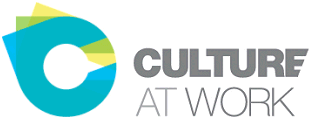![]()
ILM Coaching and Mentoring Training
In 2015, as part of a new leadership development framework and curriculum, the Royal Free London started to develop an in-house coaching and mentoring service, to support leaders from ‘the board to the ward’, with their personal and professional development, and to create a team of internal coaches. The stated objectives were:
- To create a cohort of ILM accredited coaches and mentors with formal clients, able to support leaders and future leaders.
- To improve appraisals and objective setting.
- To improve staff engagement.
- To embed the Trust’s values.
- To create a coaching culture.
Participants were invited from a broad range of roles, including managers, doctors and clinicians. They had to win their places through undertaking an interview, supplying references from their managers, and making a written submission outlining their understanding of coaching and why they wanted a place on the course. Successful candidates had to commit to being placed on a register of coaches, through which they would provide coaching each year to participants on the ‘Licence to Lead’ pathway, an internal programme where coaching is offered as an integral part of the curriculum. (Since 2017 all staff have had access to the Trust’s hub of coaches and mentors irrespective of whether they are on a leadership programme.)
Working closely with the Trust’s OD team, we designed a programme extending over five days in three tranches of training. These were spaced at least six weeks apart, to allow plenty of time for the busy participants to complete a series of practical assignments, both with partners from the course and in their workplaces, so that the skills would be thoroughly embedded, and bring about a real change in culture.
Before long, word spread that the courses were very well received, and members of the senior executive team, including CEO level, joined the training to enhance their leadership skills. It was opened up to participants from other Trusts, including Guy’s and St Thomas’, North Middlesex University, East London and Barts Health NHS Trust.
The course has been rolled out regularly several times each year and the results of the programme are reported as follows:
- The pool of accredited internal coaches is providing value to people in the organisation who have either requested a coach, or been offered one to support them in embedding the learnings from the training programmes.
- Greater trust and openness have been built between the participants from the various NHS Trusts attending the programmes. For many, these have continued to develop outside of the course, after it finished.
- Leaders have reported much more flex in their style to empower their teams to reflect on their own performance and find their own solutions, as opposed to returning to a more directive style.
- Team meetings are being run more effectively with clearer outcomes, greater involvement and more defined actions and accountability.
- People are listening more, throughout the organisation.
In terms of ROI, the annual staff survey of 2018 shows a significant improvement from 2015, and further advances are expected when the 2019 survey becomes available. The main progress is in three areas:
1. Immediate managers including:
-
- how satisfied with support from immediate manager
- gives clear feedback on work
- is supported in receiving training, learning and development:
2. Staff engagement including:
-
- looking forward to going to work.
3. Quality of appraisals including:
-
- helped in agreeing clear objectives
- helped in improving how to do job
The following graph shows the rise in satisfaction (on a scale of 0 to 10) in all three categories:

“The Trust now has a cadre of senior leaders who have grown together, and a great springboard to explore further performance improvement. We also grew as an organisation by sharing the experience with other executive teams – personally I found that very powerful.” – Caroline Clarke, CEO, Royal Free London.
“We know we can’t claim that all improvement is directly linked to the coaching programme, but we do know it will have significantly contributed to our improved scores. The hard data along with the narratives paints a picture of outstanding progress towards a coaching culture. All of this in a context of an organisation that acquired two hospitals in 2014 and moved to a group model in 2016.’”- Caroline Mabey, Deputy Director of OD, Royal Free London.
“I would like to give a real life example of the power of this open and inclusive approach to team management. Late at night I was working on the intensive care unit (I am an intensive care doctor) and we, the team, were struggling with an extremely sick baby; the nurses that were looking after the baby with me were attending to drawing up some drugs for the baby while I continued to try and keep the baby stable. Despite my best efforts the baby was gradually getting worse to the point I feared that we might lose her.
Another nurse who was not directly involved with the care of this baby was heading for her break but noticed that the baby was in difficulty and came over to ask if I needed any help. In my mind I was running through all the possible options which I thought might help the situation, but none of my actions seemed to be working.
Without thinking, I asked the nurse what she felt might help. I think I might not have done this previously or at least not in such an open way. She made a suggestion that I initially discarded but then explored with her further. Our short conversation resulted in a change in treatment for the baby that stabilised her condition and ultimately contributed to saving her life. This may sound dramatic but I truly believe that my open questioning helped the team manage a potentially disastrous situation.” – Tim Wickham Consultant Paediatrician, Royal Free London.”
